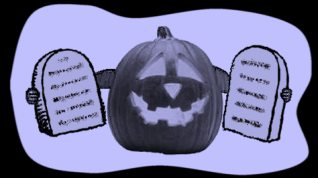(iii) The sages knew it all – surprising ancient knowledge is yet another ruse in the game. If our ancestors knew so much without modern scientific tools, then it must be God himself who took care to grant them this knowledge.
This method is most popular among Jewish players of the game, some of whom have turned it into a real art. Rabbi Zamir Cohen, for instance, has produced a booklet named Bible and Science, where he masters this game and allegedly exposes certain mysterious knowledge found in the Bible and in the Jewish Talmud.
In general, these so-called findings are nothing more than simple manipulations of old contents, combined with lack of knowledge and aimed at the young and the bewildered. Want an example? Sure you do!
The tractate of ‘Rosh Hashanah’ (in the Talmud) tells us of Rabban Gamliel, who is explaining to the other sages about the synodic month – the time between two consecutive conjunctions of the Moon and the Sun. In other words: The exact length of the Jewish (and also the Muslim) traditional month. Apparently Rabban Gamliel is quoted as specifying this period of time with precision that is equivalent to five decimal digits after the decimal point (i.e., 29.53059 days). Does it mean we should all start eating kosher and keeping the Sabbath?
An old Russian joke tells about a peasant named Ivan from the region of Smolensk. According to the news he won a prize for producing the largest amount of wheat during the last year. A commission of inquiry was established and found out that his real name was not Ivan, but rather it was Vladimir. He did not live in Smolensk, but in Moscow. It wasn’t wheat what he was growing, but rather it was corn, and the prize was for actually producing the smallest amount of it.
In our case, the story is similar. Research of the text and other related passages in ancient Jewish literature, demonstrates that some of Rabban Gamliel’s words were put there at a later time, and were probably associated with his name retroactively. Rabban Gamliel is himself quoted as saying some contradicting things later. Moreover, this amount of precision is nothing to be proud of, since it is the result of a simple calculation, which was known to the ancient Greeks as well as to the Babylonians. Similar results were found, in fact, in archaeological excavations such as those associated with the ancient astronomer Nabu-Rimanni, and dated more than half a millennium before Rabban Gamliel’s time.
Part of “The sages knew it all” game indeed tends to retroactively associate later masterpieces with earlier alleged authors. For example, we are used to link The Zohar book (that deals with the Jewish Kabbalah) with the name of Rabbi Shimon Bar Yochai, from the Roman times, while in practice it was published in the 13th century in Spain, by a Jewish author named Moses De Leon.
(iv) Prophecy – a good example is the ‘She’ar Yashuv’ case mentioned above. There have been many similar attempts by followers of various religions to find clues in the Biblical text for their being on the right side. Muslim preachers, for example, may quote various uses of words similar to ‘Muhammad’, ignoring the fact that they simply mean “precious things” in Hebrew. Of-course, enthusiastic Christians find traces of Jesus there. Certain fragments of text from the book of Psalms were associated with names of Zionist leaders from the middle of the 20th century. The list of ridiculous manipulations does not seem to end.
Give yourself a task: Try and search for some current event of your choice in the text of the Bible. Given enough time and resources, you’ll be sure to find something. Some ancient clues (in the right state of mind) can easily be interpreted to predict your chosen event. Cute game!

A few additional remarks are worth mentioning:
First (and not very surprisingly), none of this funny hocus-pocus stuff has ever been used to actually predict the future. It has always been used to explain past events. As the famous saying of Niels Bohr (also quoted in the above mentioned Michael Shermer’s article): “Prediction is very difficult, especially about the future.”
Second, the only real prophet we know about is the scientific approach. It can predict vast amount of things: Future weather, volcanic eruptions, the sex of an unborn child, the next lunar eclipse, and the odds of a sick person healing. None of our past mystical prophets ever came close to such ability.
Finally, even if we prove with high probability (which we didn’t) that some person in the 2nd century came to possess certain specific knowledge of our universe – why should we start praying to God or Jesus? Does this imply there’s a god who constantly keeps an eye on the deeds of our specific species on our specific planet?
It appears that once we really want to believe in something, nothing will stop us, including the truth.
<< Prev Contents Next >>






